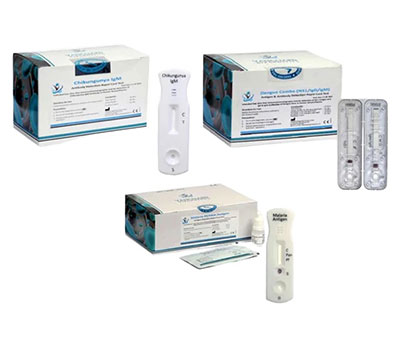Rapid Tests / Serology Reagents
Rapid tests and serology reagents have become essential tools in modern diagnostics, particularly in the context of infectious diseases like COVID-19. These testing methods offer quick and reliable results, which are crucial for timely medical intervention and controlling the spread of infections. This article will explore what rapid tests and serology reagents are, how they work, and their significance in medical diagnostics.
What Are Rapid Tests?
Rapid tests are diagnostic tools designed to quickly detect the presence of specific antigens or antibodies in a sample, usually within minutes to hours. These tests are widely used for the diagnosis of various infectious diseases, including HIV, malaria, influenza, and more recently, COVID-19. Rapid tests are valued for their speed, convenience, and ease of use, often not requiring specialized laboratory equipment or highly trained personnel.

How Do Rapid Tests Work?
Rapid tests typically use immunoassay techniques, where an antigen or antibody in the sample reacts with a reagent on a test strip or device. The result is usually indicated by a visible color change, line, or symbol on the test device. For instance, in the case of a COVID-19 rapid antigen test, the test detects specific proteins from the virus. If the virus is present, the antigen binds to antibodies embedded in the test strip, resulting in a visible line.
What Are Serology Reagents?
Serology reagents are substances used in serological tests, which are designed to detect antibodies or antigens in blood samples. These reagents are essential components in the diagnosis of various diseases, particularly those caused by viruses and bacteria. Serology tests help determine if a person has been exposed to a particular pathogen by identifying the presence of specific antibodies in the blood.
How Do Serology Tests Work?
Serology tests involve the interaction between an antigen and an antibody. The reagent used in these tests typically contains a known antigen or antibody. When the patient's blood sample is added to the reagent, the presence of corresponding antibodies or antigens in the sample will trigger a reaction, usually resulting in a color change or other detectable signal.
For example, during the COVID-19 pandemic, serology tests have been used to detect antibodies against the SARS-CoV-2 virus, helping to determine if someone had a previous infection. These tests are particularly useful in understanding the spread of the virus and the immune response of individuals.
Importance of Rapid Tests and Serology Reagents
Quick Diagnosis
The primary advantage of rapid tests is their ability to provide quick results, often within minutes. This rapid turnaround time is crucial in situations where timely diagnosis is essential, such as during a pandemic or in emergency settings. Rapid tests can be used at the point of care, reducing the need for patients to wait for laboratory results
Disease Monitoring and Control
Serology reagents play a critical role in monitoring the spread of infectious diseases. By identifying individuals who have been exposed to a pathogen, serology tests help public health officials understand the prevalence of a disease in a population. This information is vital for developing strategies to control the spread of the disease
Cost-Effective
Rapid tests and serology reagents are generally more cost-effective than traditional laboratory tests. They require less infrastructure and can be administered in a variety of settings, including remote or resource-limited areas. This makes them accessible to a broader range of patients and healthcare providers.
Versatility
These testing methods are versatile and can be adapted to detect a wide range of pathogens, making them valuable tools in the diagnosis of infectious diseases. The ability to quickly develop and deploy new rapid tests and serology reagents has been demonstrated during the COVID-19 pandemic, where these tools were essential in managing the global health crisis
Rapid tests and serology reagents are indispensable in modern diagnostics, offering quick, reliable, and cost-effective solutions for detecting a variety of infectious diseases. Their role in public health, particularly in controlling the spread of infections and monitoring disease prevalence, cannot be overstated. As technology advances, these tools will continue to play a vital role in healthcare, helping to improve patient outcomes and public health worldwide
Reach out to us today for assistance. We're here to help!
